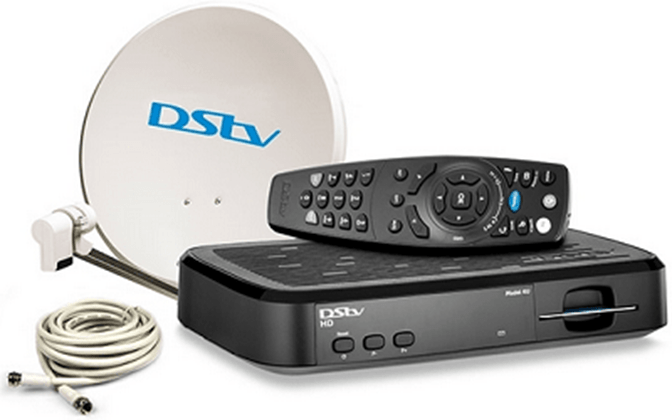The stadium erupts in cheers and screams. Hearts are pounding, breaths are held. The striker sprints forward, ball at his feet, dodging defenders with lightning speed. He winds up for the shot, and in a split second that feels like an eternity, the ball soars through the air. The goalkeeper leaps, stretching every muscle, but his fingertips just graze the ball as it sails into the top corner of the net. Goal! The crowd goes wild, jumping, hugging, crying tears of joy. A nation’s dreams are realized in this moment of pure ecstasy.
Cut to a brightly lit studio, where two contestants stand side by side, palms sweating as they await the final question. The host, voice dripping with suspense, reads out the challenge that will determine the winner of the season. The tension is palpable as the contestants furrow their brows, racking their brains for the answer. A buzzer sounds, and the underdog contestant gives her response. The room falls silent. “Correct!” the host exclaims, and confetti rains down as the winner collapses in disbelief and elation.
These are the moments that stay with us for years, sometimes decades. The shared experiences of triumph, the collective holding of breath, the eruption of joy – these are the threads that weave communities together. What price can we truly place on such memories? On the ability to witness history unfold before our eyes, to feel connected to our fellow citizens through the power of shared entertainment?
For years, DStv, owned and operated by MultiChoice Africa, has been the conduit for these unforgettable experiences in Ghana and across Africa. From nail-biting football matches to edge-of-your-seat reality show finales, DStv has brought the world into Ghanaian living rooms, creating shared moments that transcend age, background, and social status. But bringing these moments into our homes comes at a cost – a cost that is rising in the face of significant economic challenges.
Reality check
The harsh reality is that inflation in Ghana reached a staggering 54 percent at the end of 2022, moderating to 23 percent in 2023. To put this in perspective, an item that cost GH¢100 at the beginning of 2022 would, on average, cost GH¢180 at the beginning of 2024. To maintain the same standard of living as in early 2022, incomes would need to have increased by approximately 90percent. A salary of GH¢1,000 in 2022 should ideally be around GH¢1,900 today.
An average loaf of bread, once affordable at GH¢5 in 2019, now costs a GH¢30 – a 600 percent increase. Kenkey has seen a price surge of over 233 percent, from GH¢1.5 in 2020 to GH¢5 today. Even tomatoes, were earlier this year nicknamed ‘red gold’, as they became a luxury. A box once costing around GH¢3,200 little over a year ago now commands between GH¢7,500 and GH¢7,800.
The automotive market hasn’t been spared. A Toyota Vitz, a popular entry-level car model, has seen a staggering 428 percent price increase, from an average of GH¢17,500 between 2016 and 2019 to GH¢75,000 in 2023-2024. Nothing has been spared, not fuel, or sachet water, or school fees, or beer, or streaming services. Nothing. This isn’t just a statistic; it’s a fundamental shift in the economic landscape that affects every aspect of life in Ghana, including the entertainment industry.
For DStv, this inflationary pressure has seeped into every corner of their operations. The cost of renting office spaces and maintaining broadcast facilities has skyrocketed. Staff compensation has had to increase to keep pace with the rising cost of living. Electricity tariffs, a significant expense for a company that relies on constant power to broadcast, have seen substantial hikes.
Perhaps even more significantly, the company has been grappling with severe foreign exchange losses. At the start of 2022, the cedi exchanged at GH¢6 to US$1. Today, that rate hovers around GH¢16. This presents a unique challenge for DStv, as they must pay for premium content and services in US dollars while collecting revenue in cedis.
To illustrate this point, let’s consider a hypothetical scenario. Imagine DStv secured the rights to broadcast a popular international football league for US$10 million in early 2022. At that time, this would have equated to roughly GH¢60 million. Fast forward to today, and that same US$10 million contract now costs the company around GH¢160 million. That’s nearly triple the cost in local currency terms, without any change in the actual dollar value of the contract.
This forex challenge extends beyond just content acquisition. Much of DStv’s technical equipment, from satellites to broadcast hardware, is purchased internationally in dollars. As the cedi’s value has declined, the cost of maintaining and upgrading this essential infrastructure has ballooned.
Adding to these woes, the recent electricity issues in Ghana have forced DStv to rely heavily on generators to ensure uninterrupted service. With fuel costs continually on the rise, this has added yet another layer of expense to their operations. Each of these factors contributes to the increasing cost of bringing world-class entertainment to Ghanaian homes.
So, what are the options?
- Some might suggest piracy as a solution, but this path is fraught with danger. Not only does it deprive content creators of their rightful compensation, but it also exposes users to significant security risks, including malware and identity theft. Moreover, pirated content often comes with poor quality and unreliable access, robbing viewers of the very experience they seek. It’s worth noting that widespread piracy could ultimately lead to a decrease in content production, as creators and broadcasters struggle to recoup their investments.
- Others propose a pay-per-view model. However, this approach would likely result in even higher costs for viewers. Consider the price of a single premium football match or the latest blockbuster movie – applying this cost to every piece of content would quickly become prohibitively expensive for most households. A pay-per-view model might work for occasional, high-profile events, but it’s not a sustainable solution for daily entertainment needs.
- Should DStv simply shut down operations in the face of these challenges? The consequences of such a move would be far-reaching and deeply felt across Ghanaian society. Imagine the void this would leave – the countless memories that would never be made, the shared experiences lost, the disconnection from global events and entertainment. The cost to our collective cultural experience would be immeasurable.
Beyond the emotional and cultural impact, consider the economic ripple effects. DStv employs hundreds of Ghanaians directly and indirectly supports thousands more through its supply chain and content creation partnerships. Local content producers, who have found a platform and funding through DStv, would lose a vital avenue for showcasing their work. The loss of DStv would not just be a blow to entertainment; it would have real economic consequences for many Ghanaian families.
The best path forward is one of collaboration and understanding. As consumers, we must recognize the economic realities facing service providers like DStv. This doesn’t mean blindly accepting price increases, but rather engaging in informed dialogue about the challenges and potential solutions.
- For its part, DStv must continue to strive for efficiency and value, ensuring that every cedi spent translates to quality content for viewers. This might involve exploring new technologies to reduce operational costs, negotiating more favorable content deals, or finding innovative ways to hedge against currency fluctuations.
- There’s also an opportunity for DStv to further invest in local content production. While international content is a crucial part of their offering, increasing the proportion of locally produced shows and movies could help mitigate some of the forex-related challenges while also supporting the growth of Ghana’s creative industry.
- Transparency will be key in this process. DStv should consider more open communication about the factors driving price increases, helping consumers understand the economic realities behind their decisions. This could include regular updates on how they’re working to control costs and improve efficiency.
- On the regulatory front, there may be room for government intervention to support the broader entertainment industry. This could include policies to stabilize the forex market, incentives for local content production, or measures to combat piracy more effectively.
By working hand in hand – consumers, content providers, regulators, and DStv – we can navigate these challenging economic times while ensuring that quality services are maintained at the lowest possible price. This collaborative approach is the best way to ensure that we can continue to create those priceless moments of joy, suspense, and shared experiences that bind us together as a nation and connect us to the world.
The memories we create through shared entertainment are indeed priceless. From the jubilation of watching the Black Stars score a crucial goal to the shared laughter over a local comedy series, these experiences form an integral part of our cultural fabric. But bringing those experiences into our homes comes at a cost – a cost that is rising due to factors largely beyond DStv’s control.
As we face these challenges together, let’s remember the value of those unforgettable moments. Let’s appreciate the complex economic factors at play and work towards solutions that keep quality entertainment within reach for all Ghanaians. By fostering understanding, encouraging innovation, and maintaining open dialogue, we can ensure that the thrill of the game, the suspense of the final question, and the joy of shared experiences continue to enrich our lives for years to come.










